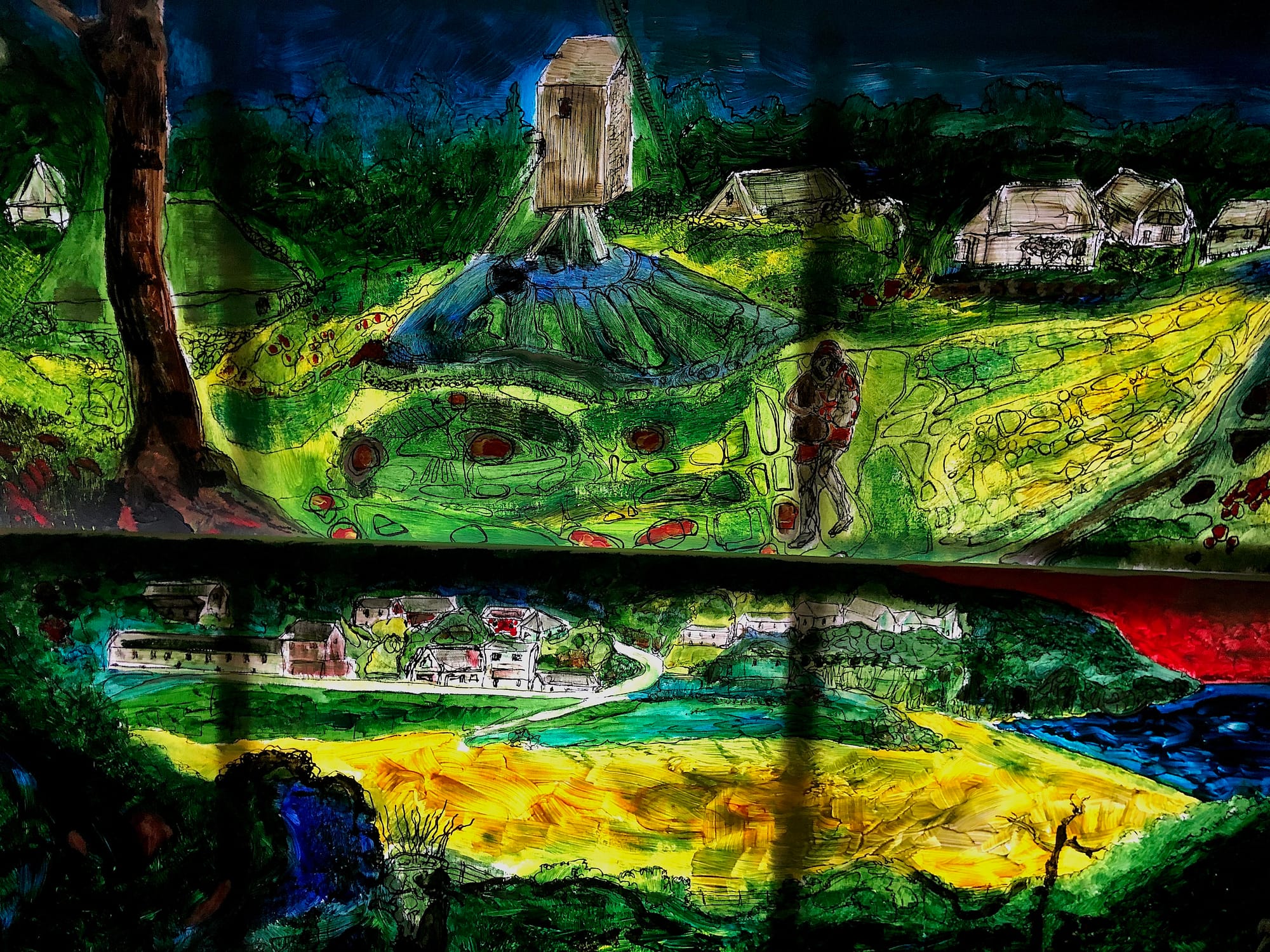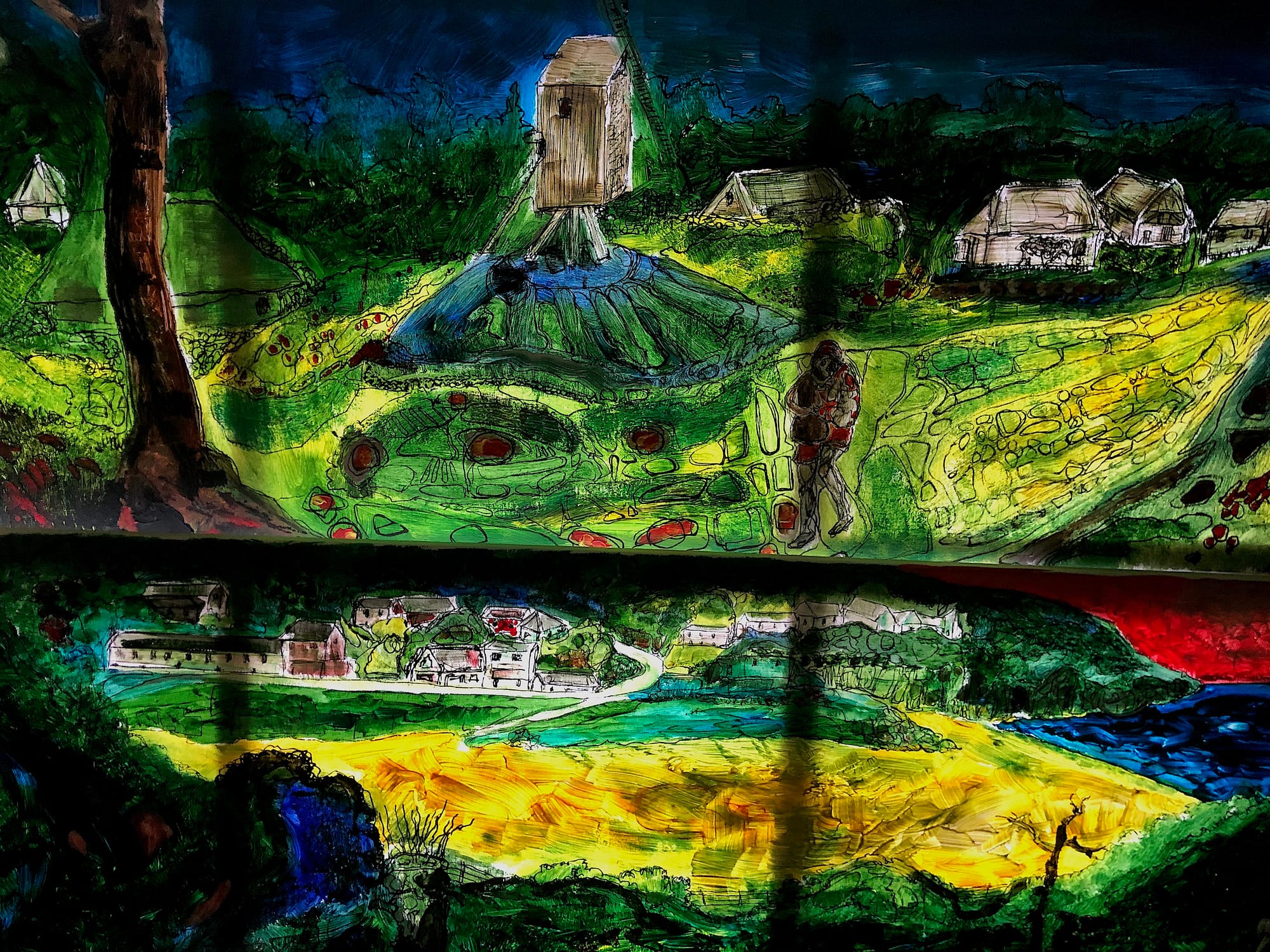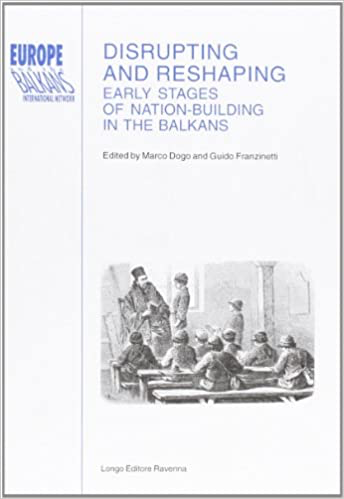1848 and All That; Or Why Ernest Gellner's Theory of Nationalism Must Be Wrong

By Guido M. R. Franzinetti

1. Ernest Gellner’s first sin. ‘It is a truth universally acknowledged, that Ernest Gellner’s Theory of Nationalism must be wrong’. A statement of this kind would neatly encapsulate the general consensus in the academic world, and perhaps beyond.
The fact that Gellner’s name appears very frequently on any google search does not prove any popularity of his (on Google’s ngram he peaked in 1966, 1983 and 2013). Most references are likely to be negative, usually dismissing him together with two other presumed ‘modernists’ (Eric Hobsbawm and Benedict Anderson). After all, a classic is something you no longer need to read.
Gellner is usually associated with his theory of nationalism. In fact, Gellner had a theory of industrial society, which assumed that industrial society required egalitarianism, and ultimately nationalism. The essential point was therefore that nationalism was historically contingent, rather than the inevitable fruit of the (re)awakening of the Sleeping Beauty (the nation) thanks to the providential action of the Prince (the awakeners). The identity of the ‘Prince’ (awakeners from above, below or the middle) was not an essential point of the theory (he could make quite contradictory remarks on this subject).
2. Fake nations? The ‘falsehood’ of the nation (i.e. the fact that had not existed ‘since time immemorial’) did not concern him unduly. He personally believed that “nationalism… invents nations where they do not exist” but that aspect was notcentral to the logic of his theory. After all, as he said in a debate in 1995:
'how do we know that the world wasn't created five minutes ago complete with memories? Well, how do you know? Maybe it was! What is the evidence?...did Adam have or did he not have a navel? Now,…if Adam was created by God at a certain date, let's say 4003 BC, obviously he didn't have a navel, so to say, because Adam did not go through the process by which people acquire navels. Therefore, we do know what will decide whether the world is very old and mankind evolved or whether the world was created about 6,000 years ago. Namely, all we need to find out is whether Adam had a navel or not…[So] it's the same with nations…My main case for modernism…is that on the whole the ethnic, the cultural national community is rather like the navel. Some nations have it and some don't and in any case it's inessential.'
In short, the issue of the ‘falsehood’ of the genesis of nations is irrelevant, a false problem. Needless to say, any self-respecting nationalist will be bound to reject Gellner’s theory. It must be wrong, therefore it is wrong.
3. Gellner’s second sin. But Gellner was not satisfied with debunking the idea of nations existing since time immemorial. He even had the cheek to argue that nationalism was actually in decline. His 1983 book came out in the aftermath of the Falklands War, which was seen by many on the Left as proof that Thatcherism had managed to ride on a wave of nationalist revival (although the actual statistical data from the electoral results of 1983 disproved this assumption). The following decade witnessed the Fall of Communism in Eastern Europe, the end of the Soviet Union, and the Yugoslav Wars of Dissolution. So, once again: Gellner musthave been wrong. Eric Hobsbawm echoed sentiments similar to Gellner’s (‘The owl of Minerva spreads its wings only with the coming of the dusk’, which meant that nationalism was coming to an end.) Hobsbawm was rightly chastised for having challenged the Nationalist Gospel, but he managed to escape total condemnation because (i) he spoke in a tone which was more amenable to left-wing sensitivities; and (ii) his books were easier to read than Gellner’s.
As a matter of fact, Gellner said something much more specific: that nationalist sentiment would decline in intensity, not that it would wither away (by analogy with the State was intended to ‘wither away’ in orthodox Marxist theory, as formulated by Friedrich Engels). If you happened to have actually lived through World War Two, for example in Nazi-occupied Europe, you would not be so surprised by Gellner’s assessment. But by 1991 the memory of WWII was fading. The USA elected the first genuinely post-war president (discarding a veteran from WWII). Memories were rapidly fading. As Maria Todorova has pointed out, just as the Balkan wars of 1912-1913 jolted the minds of Europeans at the beginning of the XXth century (when the Napoleonic wars were still the last war remembered in most of Europe), so the Yugoslav wars at the end of the century shocked Europeans. This was understandable. But none the less it demonstrated a lack of historical perspective.
Of course, saying this in the aftermath of Brexit and the Trump election may make the Gellnerian hypothesis ring hollow. I would suggest that the court is still sitting on this issue.
None of this means that Gellner was a wide-eyed optimist who embraced the euphoria of the ‘end of history’ kind of scenarios after the end of the Cold War. His post-1991 writings are full of forebodings of all sorts of fears: political, ecological, and so forth. (As the current pandemic has demonstrated, there are plenty of issues which can be just as devastating as any nationalist upsurge.)
In reality, by 1991 Gellner was somewhat repositioning himself, because of his fear of a ‘Sudeten’ scenario repeating itself in Eastern Europe (with the Russian diasporas in the role of the Sudeten Germans): conflicts connected to national minorities, leading to the outbreak of wars. But Gellner would never be forgiven, and could never be forgiven, for having deflated the self-esteem of nationalist mythologies. By that time, serious money and resources had been devoted to research on nationalism. People (investors, scholars and ordinary folk) wanted a quick answer on nationalism, and possibly a solution by the end of the evening. Hobsbawm – who ought to have known better – even suggested giving a Nobel Prize to anyone who could find a ‘solution’ to the problem.
4. Nationalism before modernity. Gellner’s theory has always been considered unsatisfactory because of one single fact: the actual emergence of nationalism beforeindustrialization. After all, all sorts of nationalist movements have emerged well before (or even without) the appearance of industrialization in their respective countries. So, clearly, Gellner did not have a leg to stand upon.
But it could be argued that in this case nationalists are being badly treated and underestimated. It actually reflects ’the enormous condescension of posterity’ (to use E. P. Thompson’s expression). Nationalists were not dumb spectators, dutifully awaiting the arrival of entrepreneurial missionaries (experts) who would have explained how to set a proper industrial economy. They read books, newspapers. They even travelled. And they began to see that, beyond the borders of their Ruritania (the mythical pre-industrial entity Gellner had defined, in opposition to the dominant Megalomanians) there were countries which had already reached the stage of Industria (industrialization). And these countries were beginning to come up as Top Nations (as 1066 and all that might have put it.
As we all know, reaching the stage of Industria was not an unmitigated blessing: the Dark Satanic Mills involved enormous social costs. But the Ruritanians who admired (or at least envied) these mills were not unduly concerned by their costs: they either did not see them, or they considered them worth the price. What instead wasunacceptable was the idea that, in order to have access to this Brave New World, Ruritanians should have to assimilate to Megalomanian culture (and its unspeakable language). Indeed, originally many Ruritanians did consider the option of assimilating to Megalomanian culture, and managed to do so quite successfully. But gradually (or not so gradually) this option became less attractive. Some Megalomanians began to feel that all too many Ruritanians wereassimilating to their culture (indeed, they were competing for all too many jobs which should have been rightfully reserved for Megalomanians of long-established lineage). The queues for obtaining a proper Megalomanian citizenship (and language certification) were getting longer and longer. And anyway, why should a True Ruritanian have to submit to such an indignity? The answer was: ‘Ruritania for Ever! We are proud to be Ruritanians!'.
So it might be argued that nationalism could emerge even in a country which had not yet established its Dark Satanic Mills. But if this view were accepted, what would happen to all the vast collections of Ruritanian folklore (lovingly assembled for centuries by priests and scholars)? What would be of all the (ongoing) production of History of the Ruritanian Nation, from Noah’s Ark onwards? Would they all be shredded, in the name of some post-national new orthodoxy? Would the statues of venerable Ruritanian national heroes have to be taken down? No reasonable person could contemplate such an outcome. (Just think what ‘overcoming the past’ has meant for postwar German culture.) In any case, ‘never let the truth get in the way of a good story’. The story of nationalism is a wonderful, uplifiting story (well, sometimes). And we’re all post-truth, aren’t we?
5. What about the rest? But what about ethnic cleansing, genocide? What about ‘banal’, everyday nationalism? What about the State, or indeed about politics itself? What has Gellner’s theory of nationalism got to say about these issues?
The short answer is: not much. The fact is that Gellner’s theory is deliberately pitched at a level of abstraction which avoided any discussion of the specifics of Fascism, Nazism, or even Populism. Had it not done so, it would have collapsed into a myriad of classifications and distinctions (as has been the case of other theories of nationalism). The whole point of the theory was to historicize nationalism, to normalize it as a theoretical subject, to readmit it to civilized discourse.
It is, of course, so much easier to demonise nationalism, to demonise nationalists, to disparage lesser beings (the ‘deplorables’) as naturally born Fascists (and to neglect the factors which have led to an apparent resurgence of nationalism and populism). It is so reassuring (for the liberal mind) to see reality through these lens. And this is why Gellner’s theory of nationalism must be wrong. I rest my case.

About The Author
Guido M. R. Franzinetti studied in 1974-1979 Modern History with special reference to Eastern European History at the University of Turin, Italy. He subsequently carried out research and worked in Poland, Hungary, the Czech Republic, Ukraine, Uzbekistan, Albania, Kosovo. He has also lectured at Johns Hopkins University Bologna Center (2001-2003). He is currently Research Fellow and Lecturer in Contemporary European History and in East European History at the Faculty of Political Science, University of Eastern Piedmont;“Amedeo Avogadro” (Alessandria), Italy.

His books include Disrupting and Reshaping: Early Stages of Nation-Building in the Balkans
 and
and